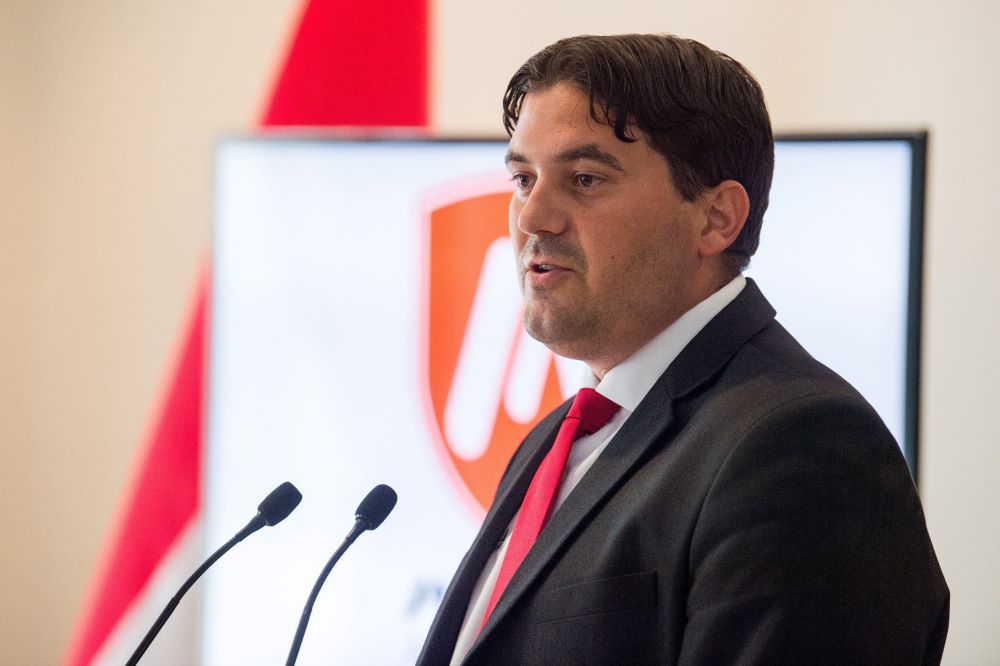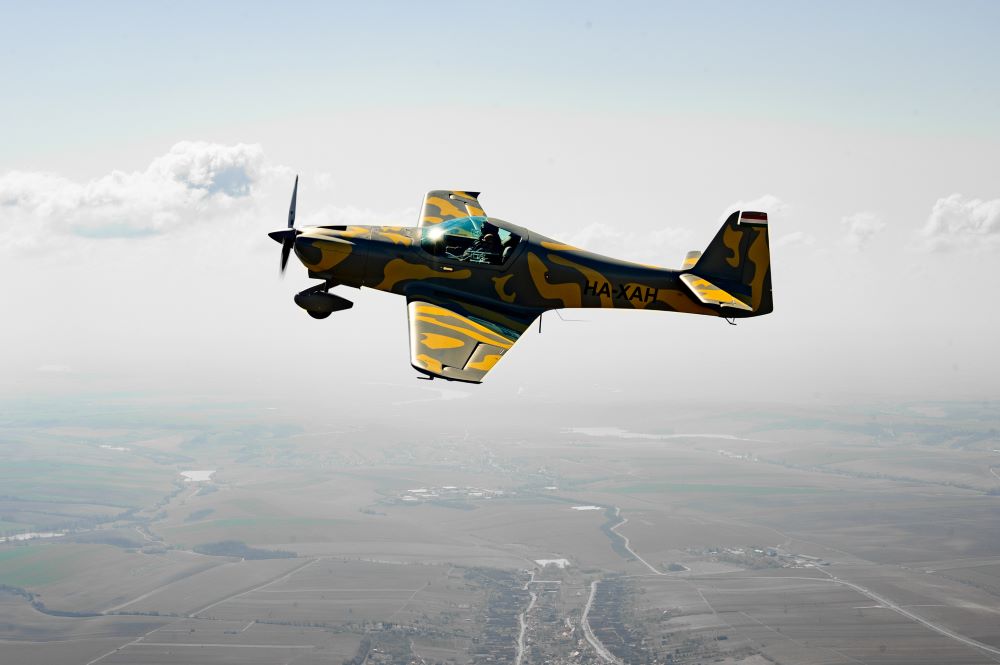Nigeria to fight Boko Haram with Hungarian planes
EnglishNigeria is buying at least twenty aircraft from Magnus Aircraft that will be used in the war against the terrorist organization Boko Haram. But how did a manufacturer in Pécs, marketing light, composite sports aircraft, manage to seize such a large-scale military procurement? We talked to László Boros, managing director of the company.
Fusion started out as a sport aircraft; it is small and light, you would rather think of it as suitable for joy flights, yet now it will become a military aircraft. What convinced the Nigerian Air Force?
Indeed, our machines used to be bought mainly by private individuals, and even their certification was for private use only. Ever since we got the certification for pilot training and commercial activities, flight schools have also become more and more interested. In Africa, it is its camera system that allows aerial surveillance that makes it particularly interesting.
Islamic terrorist organization Boko Haram is causing serious problems in Nigeria, as it came up many times during our negotiations.
Many people are fleeing the country because of the terror attacks, and the government wants to stop this trend and eliminate the terror group.
Our aircraft are capable of flying over hilly, bushy areas to provide information on the exact whereabouts and movements of the terror group.
It can be done without flying directly over the enemy, as they can detect movement from a distance of several kilometres and forward the data online to ground intervention units immediately.
Of course, all this can also be done with a combat helicopter, but those are far more expensive and their operation also costs a lot: about six thousand dollars per hour, while in the case of Fusion it is only sixty dollars.
It is a completely different dimension, which is also due to the fact that Fusion uses ordinary petrol instead of the more expensive kerosene.
How far have you got with the negotiations now?
We have already completed a strategic agreement which is to be finalized during the next month. Then we will know the exact number of machines that will be ordered. There will be at least 20 for sure, but it is also possible that it will be for 50 aircraft to be used by the air force.
How big is this deal from your point of view?
It’s a billion forint deal even for 20 aircraft; one such machine equipped for military use costs around 500 thousand euros.
The quantity is also bigger than what we sold in previous years. In 2019, we sold five or six machines and our revenue was 180 million forints. Last year, our revenue amounted to almost 700 million forints from the sale of 15 planes.
But what means even more to us than money is the fact that an air force has found our product and its technical features suitable for military deployment.
This can also affect subsequent sales positively; there is already another order in sight…
 Another military procurement?
Another military procurement?
Yes, and an African country again. Although in this case we haven’t signed a contract yet, Kenya is also looking into the opportunity to equip their border guard with our planes, and also use them against poachers and thieves or even to monitor livestock in their huge national parks.
Will you have to take on new staff so that you can fulfil these orders?
Yes, we would like to upsize our staff to 125 by the end of the year, although we need to be particularly careful now because of the pandemic. Currently we are working with 80 employees, which is also a big step forward from the beginning in 2014 when the whole story of Magnus began in Kecskemét with 11 employees. We relocated the company to Pécs in 2018, when our assembly hall of more than 8,000 square metres and the composite parts plant opened.
You can’t hear about such large-scale foreign sales very often, and players in the Hungarian defence industry also constantly complain about the lack of export opportunities. So, the question arises, how can a Hungarian-owned aircraft manufacturer after a few years of operation raise interest in its products on another continent, six thousand kilometres away?
We set up subsidiaries because we thought that if we want to enter the market in a new country, we need to be familiar with the local business culture, and for that we need local representation. These subsidiaries do the sales, marketing and brand building activities, and later on they will be capable of completing the assembly of the machines that are manufactured in Hungary. This is how we got to Africa, and in Zaria, Nigeria, we have already found the right partner, with whom we can carry out the subsequent overhaul of the aircraft and who will later be responsible for the assembly works. We also have such a plant in Kenya.
How hard was the company hit by the pandemic?
Through our Chinese and Iranian subsidiaries, we learned about the effects of the coronavirus earlier than the Hungarian public, so we started preparing for it in February, implementing the necessary health protection measures, so the transition was relatively smooth.
However, the epidemic situation also affected us, even though there was an increase in our sales in 2020 compared to 2019.
If we look at the growth trajectory we were hoping to achieve, we can see that we couldn’t achieve the goals that we had set.
Fusion is a luxury product that potential customers want to try before they buy it.
However, due to travel restrictions, they were unable to come for test flights, so we couldn’t sell as many machines as we had planned. We had our composite parts plant though, so we started manufacturing for other industries as well. Now we produce kayaks and mini-yachts, as well as car bodies for a European company, which I hope can be turned into mass production, too.
 Magnus Aircraft first attracted the attention of the public because of its electric model. How is the development of E-Fusion going now?
Magnus Aircraft first attracted the attention of the public because of its electric model. How is the development of E-Fusion going now?
We started developing a fully electric aircraft in collaboration with Siemens.
The development is now finished, the plane is ready and we have done hundreds of hours of test flights with it, so we already have some experience.
When Siemens sold its electric aircraft business to Rolls Royce, we were immediately able to contract with them and continue working.
The product is not ready yet, though, and the reason for this is the battery. It can currently fly for thirty minutes, which is not enough to launch it on the market. We have ideas for alternative solutions; we are looking at how safely hydrogen cells can be used in an aircraft. Our goal is to be able to reach a net flight time of one hour.
